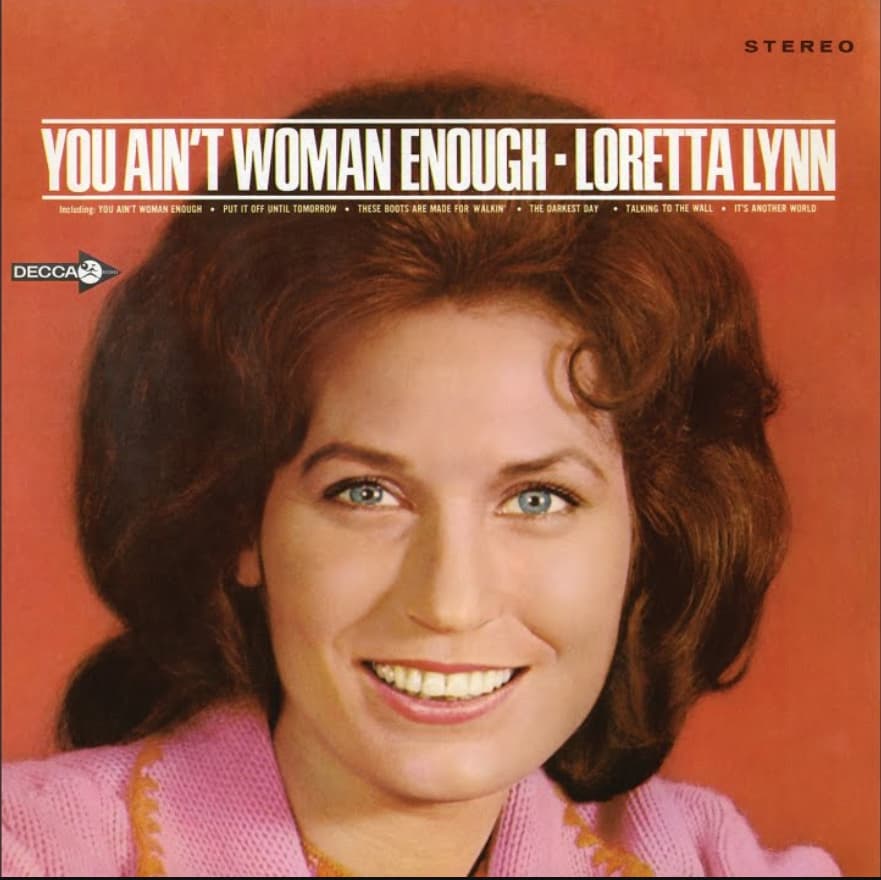
Loretta Lynn’s Iconic Anthem of Female Empowerment 🎶
When the opening guitar riff of “You Ain’t Woman Enough (To Take My Man)” first crackled on the radio in 1966, it wasn’t just another country song; it was a fiery declaration. In a genre often defined by tear-in-your-beer ballads and tales of heartbreak, Loretta Lynn delivered a brazen, defiant anthem that spoke to women everywhere. The song’s premise is as simple as it is powerful: a woman confronts her romantic rival not with tears or pleas, but with a cool, unshakeable confidence, asserting that the other woman is simply not up to the task of “taking her man.” This audacious take on a classic country trope—the love triangle—was nothing short of revolutionary for its time. It flipped the script, empowering the wronged woman and painting her as the victor before the fight had even truly begun.
Released in May 1966, the song was an instant hit, soaring to an impressive No. 2 on the Billboard Hot Country Singles chart. While it didn’t quite reach the pinnacle of the chart, its cultural impact was immeasurable. It became Loretta Lynn’s signature song, a battle cry that resonated far beyond the country music world. The song’s success was a testament to its raw, relatable message, but also to Lynn’s undeniable charisma and vocal delivery. She sang with a blend of sass and sincerity, a voice that was both sweet and sharp, cutting through the airwaves with an honesty that was impossible to ignore.
The story behind the song is just as compelling as the song itself. Lynn co-wrote the track with her sister-in-law, Betty Sue Perry, and it was inspired by a real-life incident. A woman, seemingly a fan, approached Loretta backstage after a show and confessed that she was having an affair with Loretta’s husband, Doo. Instead of getting flustered or angry, the woman’s casual audacity sparked an idea in Loretta’s mind. She didn’t respond with a fit of rage, but with a cool, collected confidence that would later become the song’s core message. As Lynn recalled, she looked at the woman and simply thought to herself, “You ain’t woman enough to take my man.” That moment of quiet defiance became the genesis for the song. The fact that the song’s inspiration was rooted in a genuine, lived experience gave it an authenticity that listeners could feel. It wasn’t just a clever lyrical exercise; it was an emotional truth.
What makes “You Ain’t Woman Enough” a timeless classic is its subtext. It’s not just a song about infidelity; it’s a song about a woman’s sense of self-worth. In a world where women were often pitted against each other, the song refused to play that game. Instead of blaming the “other woman,” Loretta Lynn’s character asserts her own strength and superiority. She’s not a victim; she’s a queen defending her kingdom. The song’s unapologetic confidence was a beacon for women who felt they had no voice. It gave them permission to stand tall, to reclaim their power, and to believe in their own worth. It was a revolutionary statement in the mid-60s, a time when women’s roles were still largely defined by men and domesticity. This song, along with many others from her incredible catalog, solidified Loretta Lynn’s legacy as a trailblazer and a true champion for women.
Its influence can still be heard in music today, a testament to its enduring power. It’s a song that proves that female empowerment isn’t a new concept, but a thread that runs deep in the history of country music. It’s a powerful reminder that a strong woman, with a clear voice and an unwavering spirit, can change the narrative, one defiant lyric at a time. The song is a powerful testament to the spirit of a country icon, and a true gem in the history of music. It’s more than just a song; it’s a piece of history, a memory, and a reminder of a time when a simple country tune could spark a revolution.